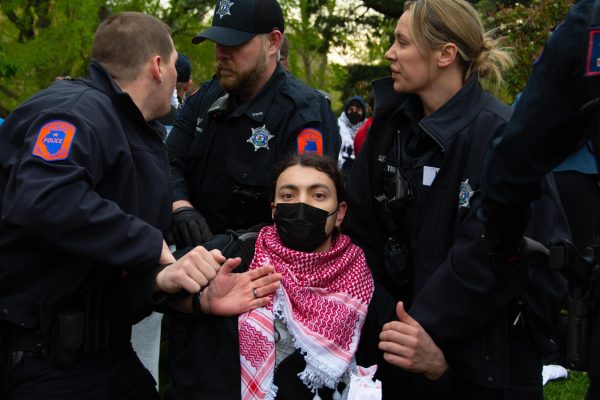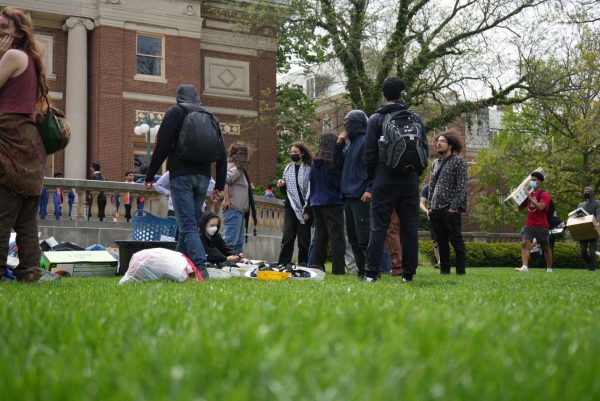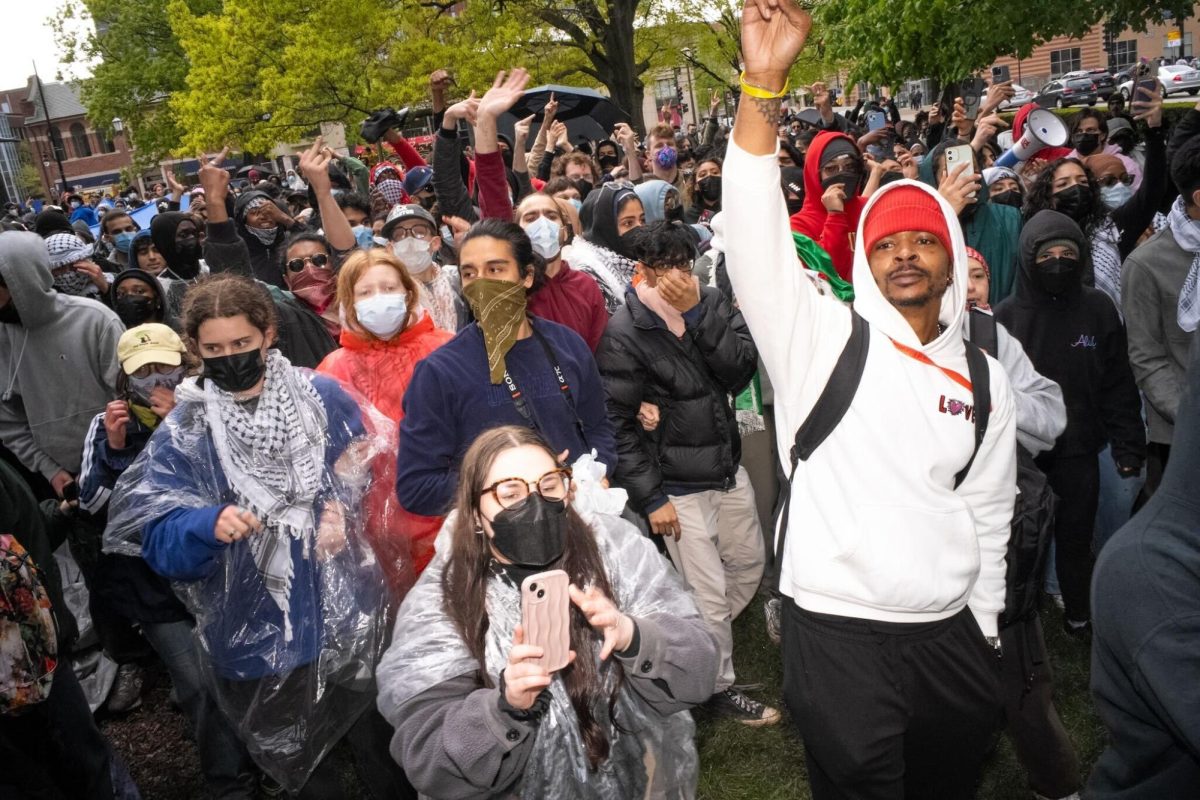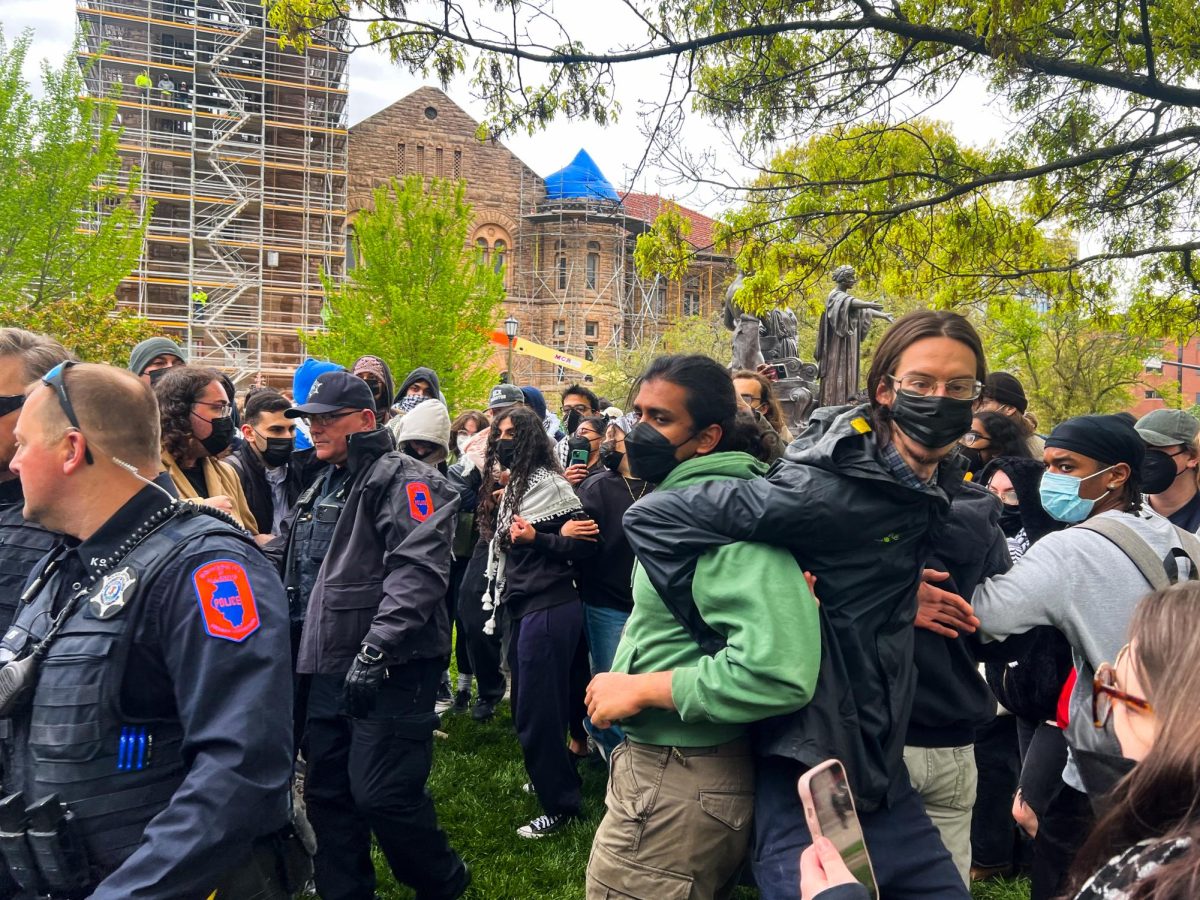For those participating in or watching the 117th annual Boston Marathon on April 15, including 13 University affiliates who ran in the marathon, the traditional scene of sweaty triumph and cheers was transformed into one of terror and screams after the two bombs exploded at the finish line, killing three and injuring over 180 people.
Martin Gruebele, professor of chemistry, participated in the Boston Marathon for the first time last Monday and said he was fortunate enough to cross the finish line about an hour before the explosions. Gruebele said while trying to board a train at the Hynes Convention Center, a subway station located about two blocks from finish line, he heard explosions that were first thought to be a main gas pipeline burst. Security evacuations were then put into effect, which led to Gruebele taking another train.
While riding the train, Gruebele said he met a female runner who had blood dripping down her legs. The runner told Gruebele that the blast from the explosions caused a collision between she and another runner while crossing the finish line.
“That was my first inkling that this was not a gas main explosion,” Gruebele said in an email.
University alumnus Shannon Kraus never got to cross the finish line. He said he was roughly 0.34 miles away from finishing before he was forced to stop the race without any explanation at the time.
Get The Daily Illini in your inbox!
After learning about the explosions, Kraus said he was grateful for having a slower than normal time.
“I was ultimately thankful a knotted calf had me on pace to my slowest marathon ever and kept me from harm’s way,” Kraus said. “It is now my lucky calf.”
After being told to wait for buses that would take the runners to retrieve belongings across the finish line, Kraus said a mysterious package in the bus area caused another evacuation.
“What normally would be a packed area with proud runners receiving their medals and collecting their checked bags looked like a semi-deserted war zone with police, bomb-sniffing dogs and now a few runners trickling in to a newly secured crime scene,” Kraus said.
Kraus said that not completing the race wasn’t originally a major concern of his, but it soon began to bother him because terrorism is what prevented him and other runners from finishing the race.
“I think I am not alone in believing most runners would re-race Boston tomorrow if we could, simply to send a message that America won’t be stopped or intimidated,” Kraus said.
Graduate student Cynthia Ginsberg, who also ran in the marathon, said solidarity in Boston was important at the time of the crisis.
“I have talked to a number of other runners about this, and even those who normally shy away from large races like Boston are saying that they would like to run it next year as a demonstration of solidarity,” Ginsberg said in an email.
Crossing the finish line with a time of 3 hours, 30 minutes, 41 seconds, Ginsberg said she was fortunate enough to finish about 40 minutes prior to the explosions.
Ginsberg was informed of the bombing after receiving a concerned text from a friend. Upon arriving back to her hotel, Ginsberg said everyone was glued to televisions in the lobby, watching the news.
Later that evening, Ginsberg said she went to a sports bar with her mother, but she said the scene was not the usual celebration with a huge street party. Instead, the city seemed “eerily somber,” she said.
“All 10 TVs were turned to different news stations,” Ginsberg said. “The place was packed, and everyone was staring silently at the television.”
Because of the bombings and their effect on the community, Gruebele said the event is likely to change permanently in years to come.
“I’m sure (Boston Marathon officials will) have metal detectors, restricted access, massive police turnout, frisking of bags and what have you at the marathon next year,” Gruebele said. “It will never be the same again.”
Megan can be reached at [email protected].









